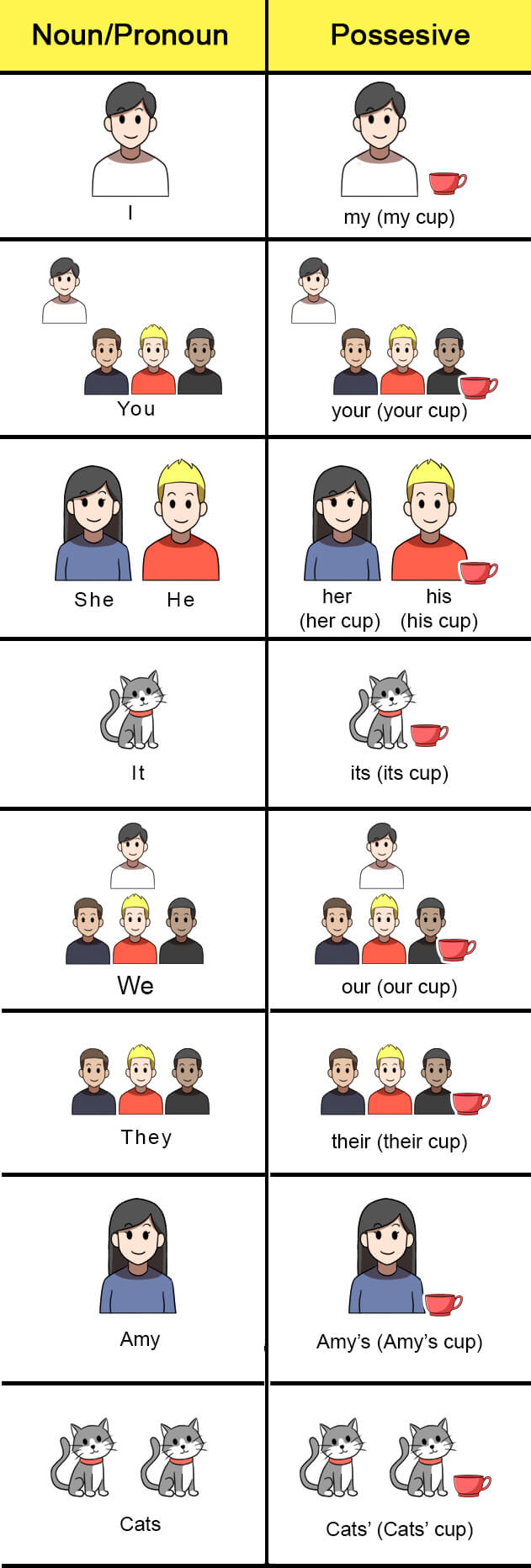Possessive Adjectives
- Possessive adjectives show who or what owns something.
- The possessive adjectives are: my, your, his, her, its, our, their.
- 'My' is used when something belongs to 'me', 'your' is used when something belongs to 'you', 'his' and 'her' are used when something belongs to 'he' or 'she'.
- Please remember that possessive adjectives always go before a noun.
Possessive adjectives go before a noun to show who or what owns something. The possessive adjectives in English are: my, your, his, her, its, our, their.
Each subject pronoun has a corresponding possessive adjective.

How to form a sentence
Put the possessive adjective before a noun.
Examples:
-
This is my book.
Subject ("This") + be verb ("is") + possessive adjective ("my") + noun ("book").
-
Is this your bag?
Be verb ("Is") + subject ("this") + possessive adjective ("your") + noun ("bag")?
Here are more examples.
Examples:
-
Is this your bag?
"your" = possessive adjective. "bag" = noun.
-
Her shoes are blue.
"Her" = possessive adjective. "shoes" = noun.
-
Their cars are old.
Subject (Possessive adjective "Their" + noun "cars") + be verb ("are") + adjective ("old").
和AI英语老师一起练习这个话题
AI英语老师会教您语法,并以对话的形式和您一起练习。 另外,还有 100 多个有关该主题的练习题来巩固您的理解。
在您的手机或平板电脑上免费试用 ALULA








你对这节课有任何问题吗?请在下面的评论区提问。